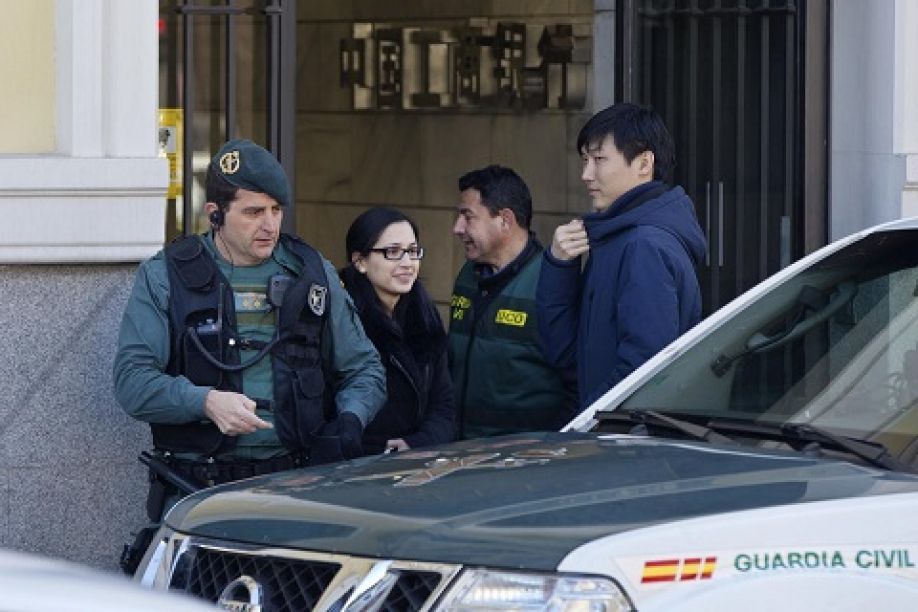Spanish police have arrested five directors of Industrial and Commercial Bank of China (ICBC) after they raided the lender's Madrid offices as part of an investigation into alleged money laundering.
China's large state-owned lenders have been dogged by allegations of improper conduct as they expand abroad and the probe into ICBC by police, the Spanish tax agency and Europol involves funds handled by a criminal group which the Interior Ministry says passed through the bank and were transferred to China.
Over 100 police were involved in the operation, which saw the arrest of five ICBC directors, Europol said in a statement on Wednesday (Feb. 17).
A Beijing-based spokesman for ICBC, China's largest bank in terms of assets, said its Madrid branch was cooperating with the investigation. "Strictly implementing anti-money laundering regulations and strictly operating within the law and regulations have always been our fundamental operation and management principles," the spokesman added.
The Chinese embassy in Spain also said it currently had no reason to believe ICBC had been breaking the law, adding that it had not received official notification about the case from the Spanish authorities.
At a briefing, Chinese Foreign Ministry spokesman Hong Lei said the government hoped Spain handled the situation "justly and according to law, effectively guaranteeing the legal rights and interests of Chinese organizations and personnel".
The probe into ICBC follows a slew of allegations of money laundering levied against other Chinese banks.
Last June, prosecutors in Italy asked Bank of China's (BoC) Milan branch to be tried for smuggling among other alleged crimes and a month later, the U.S. Federal Reserve told China Construction Bank Corp to address deficiencies in money laundering compliance.
Such probes could mar the reputation of these banks as they expand abroad, primarily to cater to the growing presence of Chinese firms, bankers at overseas branches of the lenders said.
"We haven't been abroad for long, so this has an impact on all of us," said a banker at a London branch of a top-four Chinese lender.
Analysts, however, said Chinese banks are not necessarily the worst offenders when compared to their global peers.
"If you look at the fines globally, which firms have been fined the most in terms of anti-money laundering, you wouldn't find the Chinese banks near the top of that list although some have been asked to tighten procedures," said Mark Wightman, a partner in the wealth and asset management at Ernst & Young.
For example, HSBC agreed in June last year to pay Geneva authorities $43 million to settle a money laundering investigation at its Swiss private bank.
Wightman also added that conditions are likely to get tougher for all banks as the Common Reporting Standards (CRS), a global tax residency rule, come into effect this year.
"Everyone will be looking at their client bases in a lot more detail as they have to store info on client tax residency as well, and manage any potential challenges to that, so that's another question the banks are struggling with," he said.
By Courtesy of Reuters
















